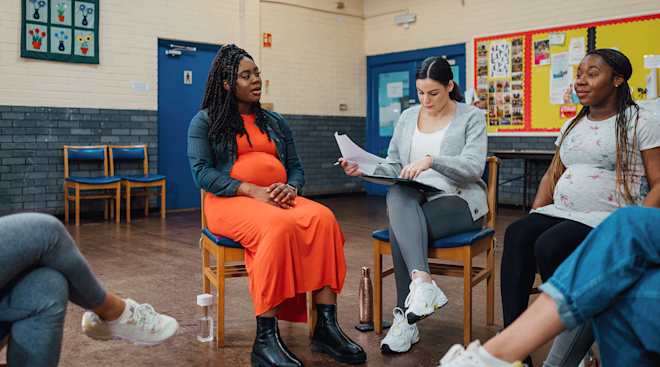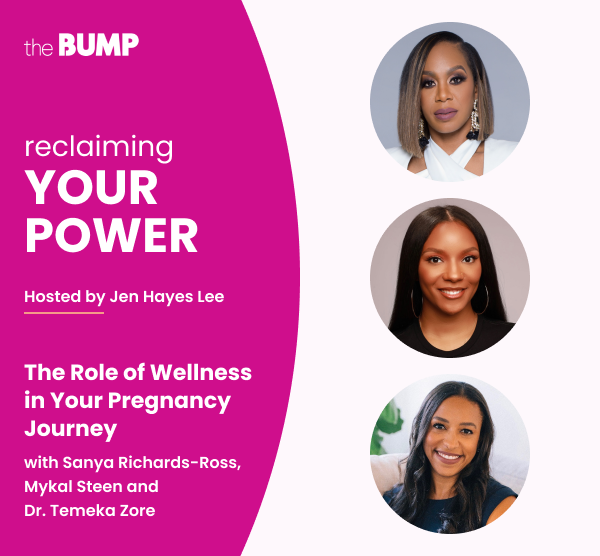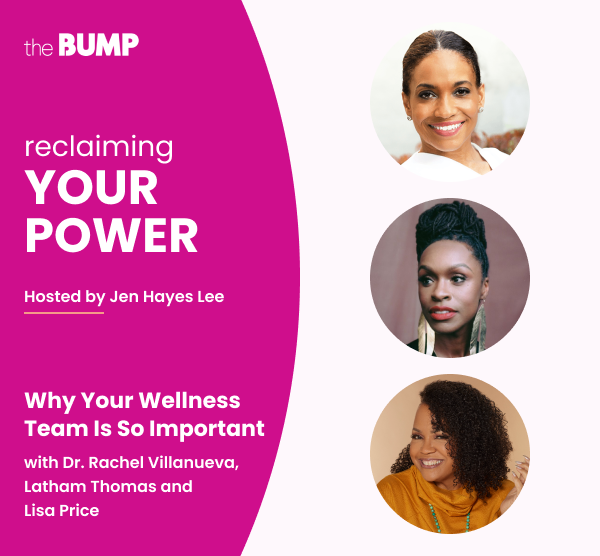Prenatal Wellness Classes Can Cut Moms' Depression in Half, Study Says
Over the past 10 years, America has turned its attention to providing parents with better prenatal support. From enhanced prenatal checkups to vitamins, birthing classes, yoga classes and more, studies have shown again and again that the actions you take while pregnant can have a big impact on you and baby. In a recent discovery, scientists have added another item to parents’ prenatal checklist—prenatal wellness classes.
The long-term study started in 2014 at the University of California San Francisco (UCSF) and has followed pregnant women and their babies for eight years. The researchers sought to specifically observe the impact of low-cost prenatal wellness programs on parents’ immediate postpartum mental health and mental health later in life.
During the eight-week class intervention, 162 women were split into groups of around 10 and assigned to either an intervention group or a standard “control” group. Those in the intervention groups met for two hours a week to practice mindfulness-based stress reduction exercises, focusing primarily on mindful eating, breathing and movement. They were led through group lessons and activities by a master’s degree-level health professional and received two phone sessions and a postpartum “booster” group session with their infants.
At the beginning, end and throughout the study, researchers assessed women’s depressive symptoms using the Patient Health Questionnaire (PHQ-9). Though both groups of women had equal symptoms of depression before the class, 12 percent of the women who were part of the intervention wellness classes reported moderate or severe depressive symptoms postpartum compared to 25 percent of the women who received standard care.
What’s more, the study found that not only did these prenatal wellness interventions cut depression rates in half during the immediate postpartum period, but women saw the same decrease in depression up to eight years later.
“Mindfulness practice is known to help alleviate stress in many situations and can meaningfully affect coping and health, and it seems here that it was particularly powerful during pregnancy, with enduring effects,” Nicki Bush, PhD, professor of pediatrics and psychiatry at the UCSF Weill Institute for Neurosciences and senior author on the study said in a news release. “Our sense is that the community connections and social support involved with the (wellness class) group were therapeutic as well.”
The impacts of the study also extended beyond mom to baby, where the effects from the classes were shown to support healthier stress responses in baby .
Unlike many previous studies, it’s worth noting that the UCSF study took a particular interest in how these classes could impact Black, Indigenous and people of color.
“Our participants were lower-income, racially and ethnically diverse women who are systemically exposed to factors that put them at risk for depression, such as racism and economic hardship,” Bush said. “Also, the final years of the study were during the COVID-19 pandemic, when depression rates were higher for everyone, and the burden placed on communities of color was even greater. Even so, the treatment effects held up.”
For the 1 in 8 women who experience symptoms of postpartum depression, the researchers hope these low-cost, life-changing classes can become more readily available.
If you are part of a high-risk group or worry that you’ll experience postpartum depression, know you aren’t alone. Learn ways you can establish an emotional support group and learn more about recognizing the signs and symptoms of postpartum depression. You can also reach out to the new Maternal Mental Health hotline at 1-833-943-5746, where you can talk or text with a trained counselor about things you may be struggling with.
The Maternal Mental Health Hotline isn’t intended as an emergency response line; if you’re experiencing a behavioral health crisis, please contact the National Suicide Prevention Lifeline at 988.
Please note: The Bump and the materials and information it contains are not intended to, and do not constitute, medical or other health advice or diagnosis and should not be used as such. You should always consult with a qualified physician or health professional about your specific circumstances.
Navigate forward to interact with the calendar and select a date. Press the question mark key to get the keyboard shortcuts for changing dates.





















































